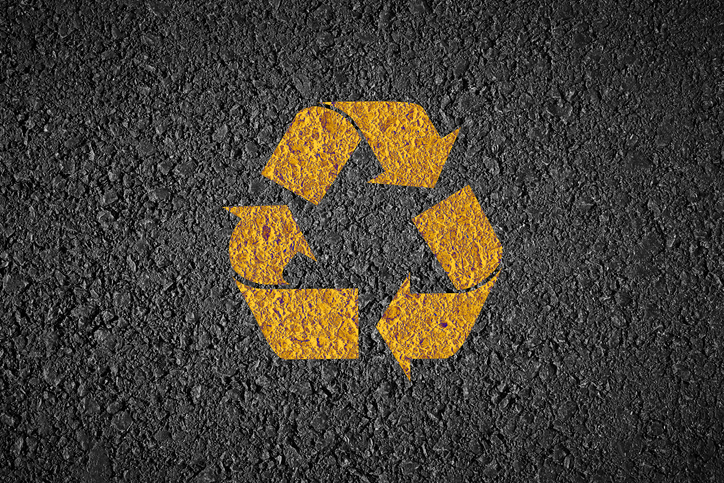
Tests have shown that the use of recycled materials in roads is both cost effective and better for the environment, according to the nation’s peak resource recovery body.

The Australian Council of Recycling (ACOR) released a report this week outlining the benefits of using recycled materials such as soft plastics and tyre crumb to build roads.
ACOR CEO Pete Shmigel said the benefits of using recycled materials are two-fold for the environment.
“We’re not sending material that was previously going into landfill to landfill … when you do that, you’re also preserving resources,” he told Government News.
Tests conducted by ACOR showed that recycled content roads have greater longevity and value for money than ‘virgin’ roads.
“The way the hydrocarbons are applied through recycled plastic into the asphalt as an additive is a more successful process than using oil,” Mr Shmigel said.
“The road stays together better with the recycled content plastic than it does with the oils, so you can roll more cars over and across it for more time.”
Recycled roads appearing across Australia
States across Australia are currently using recycled materials to build roads, including Adelaide, Sydney and Melbourne.
“The road stays together better with the recycled content plastic than it does with the oils, so you can roll more cars over and across it for more time.”
At the beginning of this year, the City of Adelaide constructed a road made entirely from recycled material, using reclaimed asphalt and recycled vegetable oil.
In August last year, Sutherland Shire Council built the first NSW road using soft plastics, glass bottles, used printer cartridges and recycled asphalt.
Also last year, Hume City Council in Melbourne built a road from plastic bags, glass, printer cartridges and recycled asphalt.
National standard needed on recycled content
However, there is currently no national standard for using recycled materials, leading to inconsistencies between the states, Mr Shmigel says.
To ensure that the best materials are used, it is important to standardise the process across the country, according to Mr Shmigel.
“If recycled roads go ahead, we want to make sure that the best possible ones go ahead that do meet environmental standards and are superior products,” he said.
Australia vs other countries
This concept of using recycled materials for roads is not new; it’s currently being used in the United States, India and other countries.
“Here, road building is highly concentrated amongst state government authorities, and they tend to be quite low-risk organisations and they stick with what they know.”
Mr Shmigel believes that Australia has a small market for roads compared to other countries. The United States, in particular, has many roads and numerous decision makers working on their construction, which leads to innovative solutions.
“Here, road building is highly concentrated amongst state government authorities, and they tend to be quite low-risk organisations and they stick with what they know,” he said.
“To do something new is a process for them and they’re only now going through the process of determining the benefits and risks and now setting the specifications.”
For government organisations interested in using recycled materials for roads, Mr Shmigel recommends that they start by “earmarking” road projects that they can use recycled materials on, and then work towards creating a national standard around recycled content roads.
“Basically it’s a question of starting with some projects because it’s been done a lot in the past and done a lot overseas and, at the same time, if we really really want to be certain and sure, let’s make sure we get our specs and regulations in place too,” he said.
Comment below to have your say on this story.
If you have a news story or tip-off, get in touch at editorial@governmentnews.com.au.
Sign up to the Government News newsletter
I fully support the concept of using recycled materials in the construction of road surfaces. I believe however, that further study needs to be done to demonstrate the impact of microplastics entering the environment from wear and tear on these surfaces. If the bitumenisation of these plastics means that they do not get loose in the soils, air and waterways then GREAT! Otherwise, we probably haven’t found the ultimate solution yet.
Very concerned about the potential for microplastic particles from wear and tear on these roads entering waterways and ending up in the ocean. Until we have stormwater management systems that can assure these particles are captured, better to keep these roads for inland areas where they are unlikely to find their way out to sea.